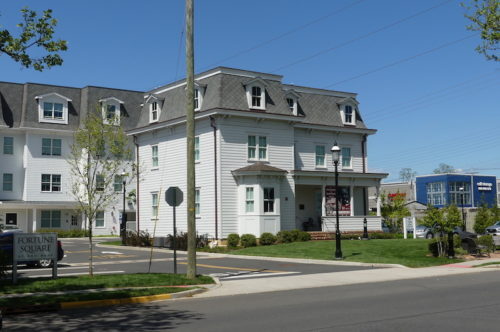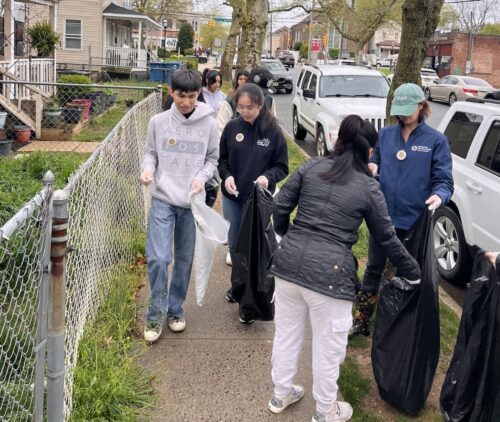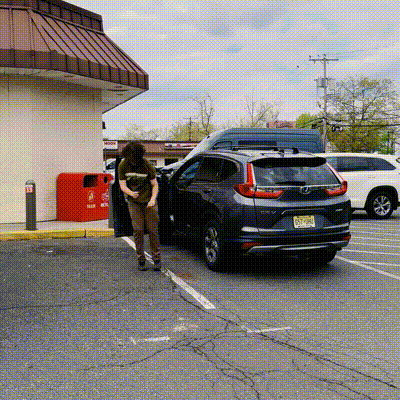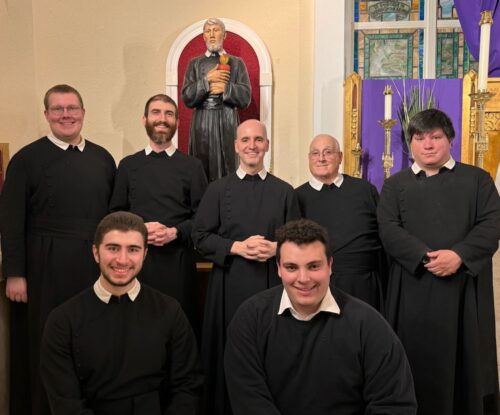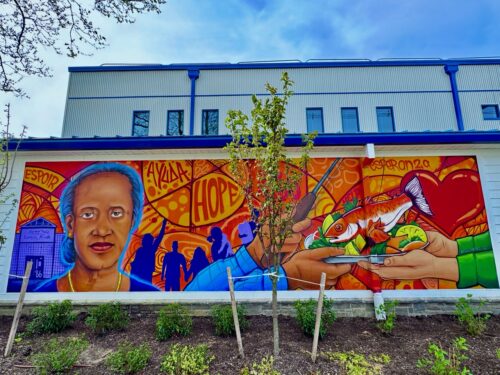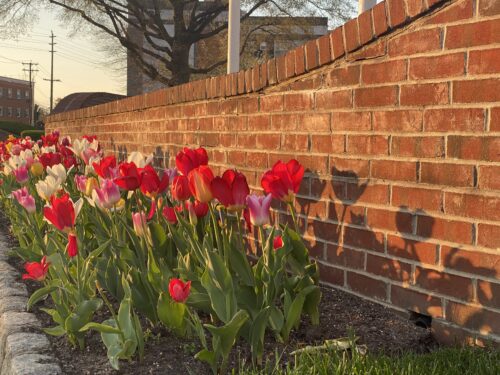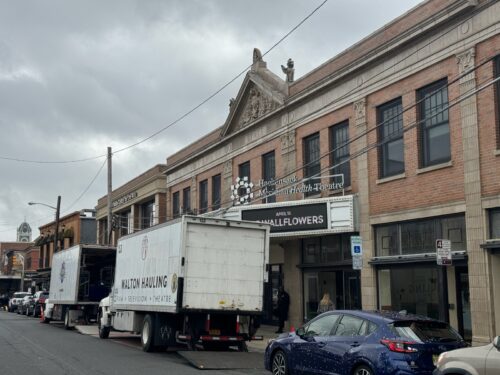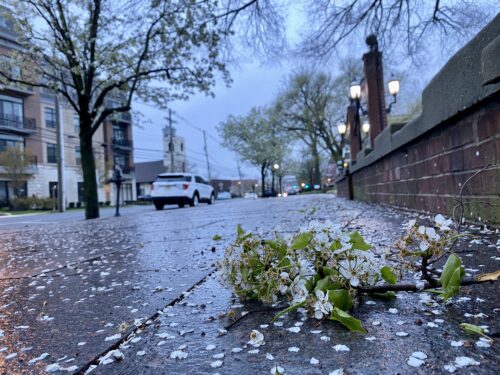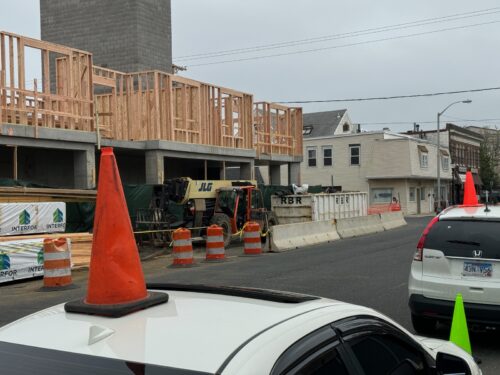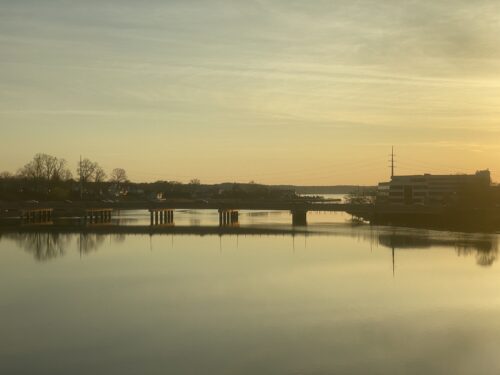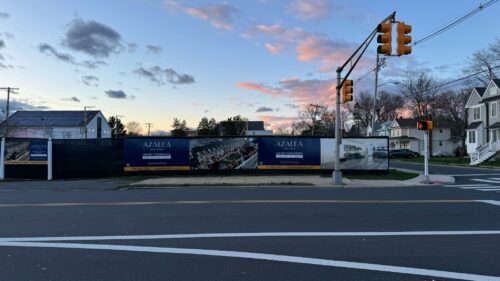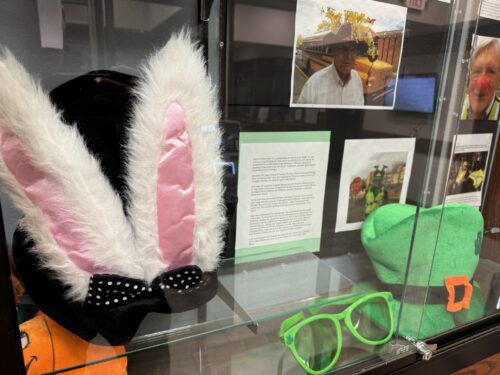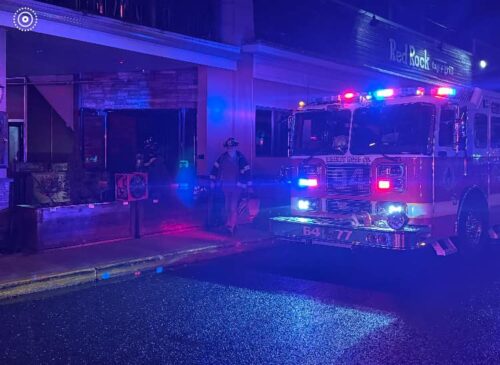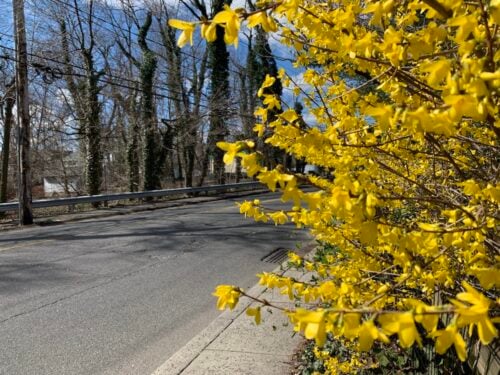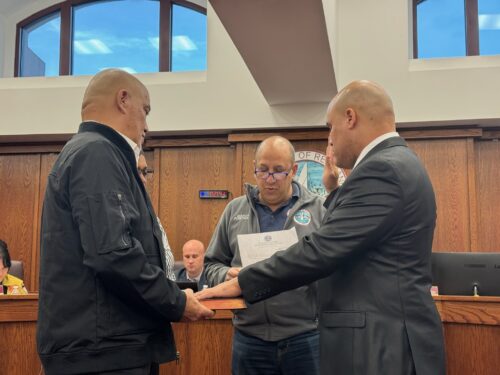
By LINDA G. RASTELLI
Some political opponents have characterized him as an “environmental wacko,” says Middletown Mayor Gerard Scharfenberger.
He’s initiated a free “Dock & Roll” shuttle bus route between the Bayshore Ferry Terminal and the Middletown train station, with stops at shopping centers. He’s pursuing what he calls a “very aggressive” open space program. He’s overseeing a switch to green cleaning products in town facilities, bringing hybrid vehicles into the towns fleet, and installed a methane-burning water heater that saves $40,000 a year for the township sewer authority.
And he’s thinking bigger. Scharfenberger says he hopes to put five or six wind turbines in an open area in Belford. “Its the cleanest energy you can imagine, and it will pay for itself,” he says.
Green and proud of it, Scharfenberger last Thursday hosted a presentation on climate change that attracted a small yet vocal group of about 20 local residents.
A professional archaeologist now running for re-election as mayor of Monmouth County’s largest municipality, Scharfenberger says caring for the environment is not a partisan issue.
“Theres a little something for everyone Democrat or Republican, up or down,” he says. It’s about saving money for taxpayers, cutting pollution, and reducing our dependence on foreign oil, he adds, invoking the specter of the war in Iraq.
“Middletown lost 37 people on 9/11,” he said. “That’s a big deal.”
And aside from the occasional “wacko” characterization, Scharfenberger said he’s finding little resistance to his soft-spoken appeal. “People sometimes come up and say, ‘I dont want a windmill on my street,’ so I have to tread lightly,” he said. But the message he’s trying to convey is generally accepted, he added.
For last week’s event, held at the Middletown Arts Center, Scharfenberger invited Dr. Patrick Hossay, who teaches classes on sustainability and environmental issues at Stockton College and is helping the township conduct an energy audit, to speak about climate change.
Hossay admits he’s no Al Gore, whose high-tech stage presentations on the topic led to an Oscar-winning film, “An Inconvenient Truth.”
His is, however, a self-styled “an environmental nut” who drives a vegetable-fueled car and lives in a house that produces more energy than it consumes.
Still, such “individual lifestyle choices” won’t be enough to head off the severe effects of climate change, Hossay said.
Global warming is “actually a local problem,” he said. “The majority of sources of emissions autos, buildings, municipal buildings and waste management are all local,” he added.
Hossay believes that local changes, such as building more pedestrian-, bike- and transit-friendly communities and eating more locally grown food, will actually revive the old-fashioned community values many people are seeking.
“It’ not about living in a cave and wearing a hemp shirt,” he said.
Middletown joined the Sierra Clubs Cool Cities program earlier this year and has its own Green Initiative, which Sharfenberger outlined to the assembled group, who, judging by their questions and comments, were already up to speed about the issues and supportive of the mayors policies.
One woman told redbankgreen that she lives in Colts Neck, but attended the event becuase she admires Sharfenbergers policies.
“Our town isn’t doing anything like this,” she said.
The Middletown mayor has signed onto the U.S Conference of Mayors’ Climate Protection Agreement, along with those from hundreds of other towns, including Red Bank, Holmdel and Atlantic Highlands. The agreement says the mayors pledge to meet or beat greenhouse gas emission reduction targets suggested for the United States in the Kyoto Protocol, and encourage federal action to follow suit.
Both Hossay and Sharfenberger said that climate change is an accepted scientific reality, and if there were any naysayers present at the event, they remained silent
“Theres no scientific debate about whether” global warming is occurring, Hossay said. Whats at issue, he said, is how large a time frame we have to address climate change: “Fifteen, 20 or 100 years?”


